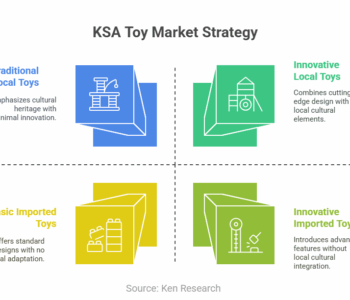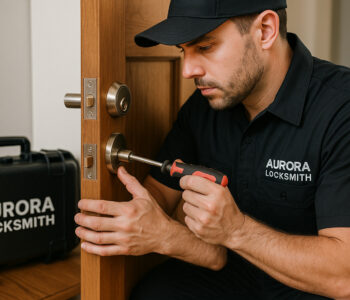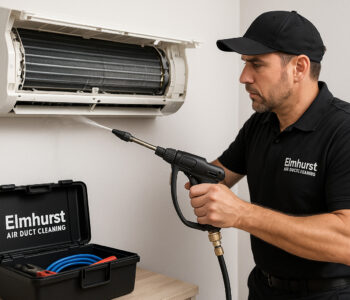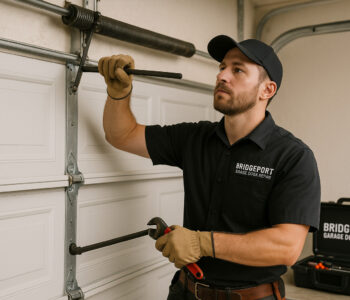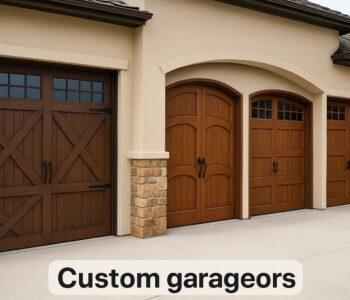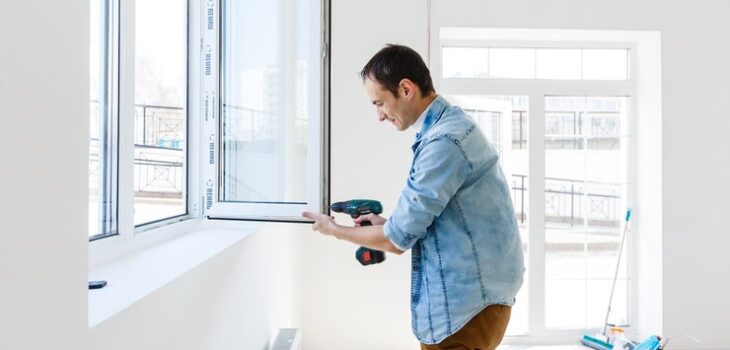 Business
Business
Window Tinting for Home That Blocks UV Rays and…
Window tinting for home refers to the process of applying a thin laminate film to the interior or exterior of residential glass windows. This film is designed to reduce heat, block ultraviolet (UV) rays, enhance privacy, and improve energy efficiency. While window tinting is commonly associated with vehicles, it’s increasingly popular in homes due to its protective and aesthetic benefits.
The process involves choosing the right type of tint such as dyed, metalized, ceramic, or hybrid and professionally installing it on your windows. Unlike blinds or curtains, window tinting works continuously without obstructing your view.
In Raleigh, North Carolina, where the sun shines strongly throughout much of the year, homeowners often use window tinting to combat UV damage and reduce interior fading. Homeowners seek out this solution not just for comfort, but to maintain the value and look of their furniture, flooring, artwork, and décor.
Which Types of Window Tinting for Home Block UV Rays Best?
Not all window films are created equal. To effectively block harmful UV rays and protect interiors, you need to choose the right type. Here are the top performers:
Ceramic Window Film
Ceramic tint is considered the premium choice for UV protection. It blocks up to 99.9% of UVA and UVB rays. It’s non-metallic, doesn’t interfere with Wi-Fi or cell signals, and provides excellent heat reduction. In 2025, many homeowners in Raleigh are opting for this technology due to its clarity and high-end performance.
Spectrally Selective Films
These advanced tints are engineered to block specific wavelengths of solar radiation, including UV and infrared (IR) light, while allowing visible light in. Perfect for homeowners who want UV protection without darkening their windows.
Dyed Films with UV Inhibitors
More affordable than ceramic, dyed films include UV-blocking additives. These can block 95–98% of UV rays. While not as effective as ceramic, they’re still a solid option for budget-conscious homeowners in Raleigh.
Metalized Films
Metalized tints offer good UV protection and add a reflective quality. However, in 2025, their popularity is declining due to their interference with electronics and their mirrored appearance, which some homeowners find unattractive.
Who Benefits Most from Window Tinting at Home?
Residential window tinting isn’t just for luxury homes or tech-savvy homeowners. It serves a wide range of residents in Raleigh and beyond. Here’s who benefits most:
Homeowners with Valuable Interiors
If you have hardwood floors, leather furniture, rare artwork, or custom cabinetry, window tinting can preserve these investments from sun-induced fading and cracking.
Families with Children or Elderly Residents
UV rays can be harmful to skin. Homeowners with babies, kids, or aging parents find comfort knowing their loved ones are shielded from UV radiation indoors.
Energy-Conscious Individuals
Tinted windows reduce heat gain, easing the burden on air conditioning systems. In 2025, with energy costs in Raleigh projected to rise 4% annually, reducing HVAC usage can save hundreds of dollars per year.
Work-from-Home Professionals
Sun glare on screens and fluctuating room temperatures can make home offices uncomfortable. Tinting helps create a consistent, comfortable workspace year-round.
Where in the Home Should You Install Window Tinting?
Not every window needs to be tinted, but strategic placement can maximize benefits. In Raleigh’s climate, here’s where window tinting is most valuable:
South- and West-Facing Windows
These windows receive the most intense sunlight during the day. Tinting here prevents overheating and fading in living rooms, kitchens, and bedrooms.
Skylights and Sunrooms
These are great natural light sources but also entry points for UV and heat. Tinted skylights preserve their brightness while filtering harmful rays.
Bathroom and Bedroom Windows
Privacy films are ideal here. They block outside views without the need for blinds or curtains, especially in urban Raleigh neighborhoods like Cameron Village or Five Points.
Home Offices and Studios
Reduce glare and maintain a productive environment by tinting windows in your workspace.
Why Should You Invest in Window Tinting for Your Home?
The “why” behind window tinting is simple it protects what matters. But let’s break it down further with compelling reasons, especially relevant in 2025:
UV Protection Equals Health Protection
According to the Skin Cancer Foundation, UV rays can penetrate glass and damage skin over time. Residential window tinting in Raleigh is now being recommended by some dermatologists as a non-invasive step toward better indoor skin protection.
Interior Preservation
UV light degrades fabric, wood, plastic, and artwork. Tinted windows drastically reduce the wear and tear caused by sunlight.
Energy Savings and Efficiency
In 2025, Raleigh homeowners are seeing a 10–30% reduction in cooling costs due to energy-efficient window films. Window tinting is also eligible for some state and federal rebates for energy-efficient home upgrades.
Home Value and Aesthetics
Modern tints are nearly invisible and can enhance curb appeal. They also offer a “smart home” upgrade that appeals to buyers looking for energy efficiency and comfort.
Privacy Without Compromise
Window tinting allows you to enjoy natural light while keeping nosy neighbors out ideal for homes near downtown Raleigh or in closely spaced suburban developments.
When Is the Best Time to Tint Home Windows?
Timing your window tinting can maximize installation ease and results. Here’s what 2025 guidance suggests:
Spring and Fall
Mild temperatures in Raleigh during March–May and September–November allow for ideal film curing. Installers are also less booked compared to the summer rush.
Before Summer
To reduce heat and UV damage during Raleigh’s hot and humid summers, spring installations are most beneficial.
After Renovations or New Builds
If you’re remodeling or moving into a new home, it’s smart to add tinting before interior pieces are exposed to sunlight.
During Energy Audits
If your energy bills are high, consider a home energy audit. Many North Carolina utility companies now suggest window tinting as part of their efficiency recommendations.
How Does Window Tinting for Home Actually Work?
Understanding how window tinting works helps you make smarter decisions. Let’s simplify the science:
Blocking UV Rays
Most residential films contain UV inhibitors that block 99% of UVA and UVB rays. This shields skin and protects furniture from fading.
Reducing Heat and Glare
Infrared (IR) radiation causes heat. Tint films reject up to 85% of IR, cooling your home naturally. Anti-glare properties reduce eye strain.
Light Control Without Darkness
Advanced films allow up to 70% of natural light in while blocking UV and heat. That means your home stays bright, not dark.
Privacy and Safety
Some tints are thicker and serve as safety films. In case of break-ins or accidents, the film holds shattered glass together, reducing injury risks.
Smart Home Integration
2025 has introduced smart tinting solutions in Raleigh. Some homeowners now use switchable electrochromic films that adjust tint level using a smartphone app or voice assistant.
Whose Responsibility Is Window Tinting in Multi-Unit or Rental Homes?
Living in a condo, townhouse, or rental in Raleigh? Here’s how responsibility typically works:
Homeowners in HOAs
If you live in a community with a homeowners association (HOA), you’ll need to check their guidelines. Most HOAs in Raleigh allow window tinting but may have restrictions on tint color or reflectiveness.
Tenants and Renters
In most cases, tenants need landlord approval before installing tint. However, removable static-cling tints are a great temporary solution and don’t damage glass.
Landlords and Property Managers
Some Raleigh property managers now offer pre-tinted rentals to appeal to eco-conscious tenants. If you’re a landlord, tinting could be a valuable investment that keeps tenants happy and protects the property.
What Are the Local Regulations and Options in Raleigh, North Carolina?
Building Codes and Permits
Raleigh’s building code doesn’t prohibit residential window tinting. However, for exterior reflective films, HOA and city design regulations may apply. Always consult a licensed installer.
2025 North Carolina Rebates and Incentives
The 2025 Clean Energy Homes Act in North Carolina offers up to $500 in rebates for energy-saving window treatments, including tinting. Duke Energy also provides rebate programs for efficiency upgrades.
Local Providers and Installers
Raleigh is home to many reputable window tinting businesses. As of 2025, top-rated companies include:
-
Dark Knight Window Tinting
Known for premium ceramic films and fast installation. -
Carolina Solar Control
Offers a variety of residential films and specializes in UV-blocking tints. - Sunshades Tint & Sound
Provides smart film solutions and decorative window films.
Final Thoughts: A Smart Investment for Your Home in 2025
In Raleigh, North Carolina where sunshine is abundant, and homes are exposed to year-round UV radiation window tinting for home is more than a luxury. It’s a smart, protective investment. It improves energy efficiency, protects your interiors, increases privacy, and adds value to your property.
As technology advances and energy costs rise, homeowners in 2025 are more aware than ever of the importance of sustainable, long-lasting home improvements. Whether you’re living in a downtown condo or a suburban home, window tinting offers benefits that make life more comfortable and your belongings last longer.
Key Takeaways:
-
Window tinting blocks up to 99.9% of UV rays, preserving your interior and protecting your health.
-
The best films in 2025 are ceramic and spectrally selective options.
-
It’s a practical solution for homes throughout Raleigh and aligns with energy-efficient goals.
-
Homeowners, renters, and landlords all benefit from adding tint, and rebates may be available.
-
The process is quick, minimally invasive, and pays off in comfort, savings, and protection.

